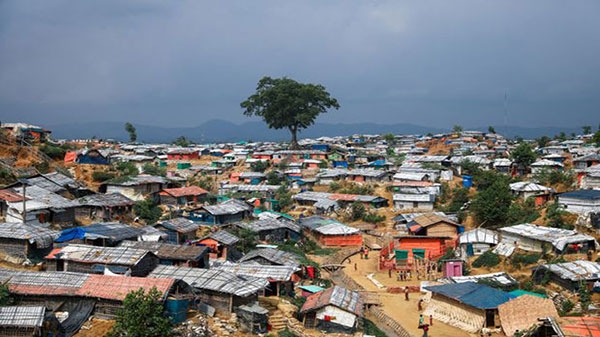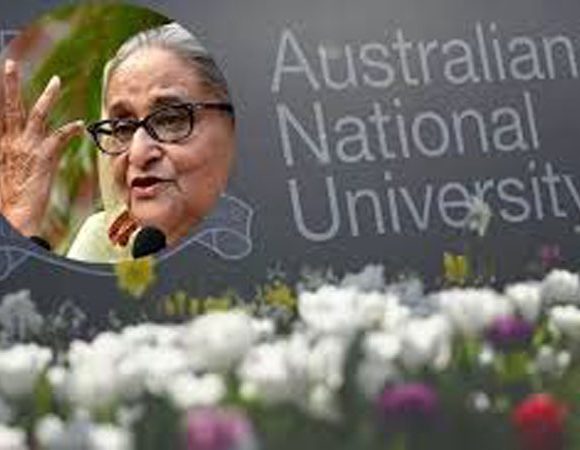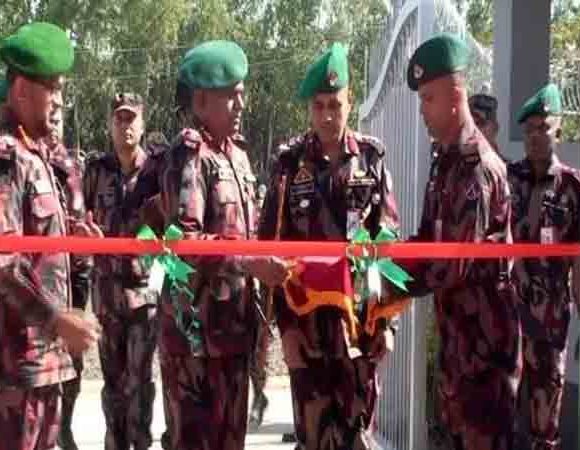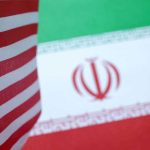Bangladesh government’s failure leads Rohingya issue to obscurity, main opposition says

NEWS DESK
The main opposition Bangladesh Nationalist Party said on Sunday that the people of Bangladesh as well as the international community were now forgetting the Rohingya issue due to the government’s diplomatic failure.
‘The Rohingya issue is a major issue for Bangladesh. This is a security issue for us, and at the same time, it is a major regional security issue,’ BNP secretary general Mirza Fakhrul Islam Alamgir said at a seminar in a Dhaka hotel.
BNP organised the seminar titled ‘Rohingya Crisis and Repatriation Strategy’, marking six years of the latest Rohingya influx.
BNP standing committee member Amir Khasru Mahmud Chowdhury read out a keynote paper at the seminar.
In his paper, Khasru said that if it assumed power, resolving the Rohingya crisis would be the party’s top national and foreign policy priority, focusing on finding a permanent solution to this complex crisis.
‘The Rohingya people have endured immense suffering, and it is our moral responsibility to seek a dignified solution to this protracted crisis. When a government lacks a popular democratic mandate, it resorts to outsourcing its foreign policy to external powers, to whom repatriation of Rohingya refugees is not a priority,’ the paper said.
The party shared some ideas to resolve the crisis effectively.
It said that engagement with the United Nations and the international community would be increased to address the crisis.
The UN should supervise voluntary, safe, dignified, and sustainable repatriation, it said, adding that it recognises the crimes against the Rohingya as genocide, crimes against humanity, and war crimes, as termed by the UN Independent Fact-Finding Mission to Myanmar.
The party said that it supports credible accountability efforts to ensure justice for victims and prevent the recurrence of violence. ‘All perpetrators must be brought to justice through the International Criminal Court and other international tribunals.’
The persecution of the Rohingya is a regional and global problem that requires a proactive policy from ASEAN countries, it said. It is crucial for all countries in the region to take responsibility and prevent the seas from becoming graveyards for those seeking safety, said the party.
The Bangladesh opposition party underscored the need for enhanced regional cooperation among ASEAN members to improve the protection of Rohingya in Myanmar and in refugee camps abroad, as well as in transit.
It said that it would welcome the Burma Act recently enacted by the United States, which supports democracy in Myanmar.
It said that it would initiate efforts to build civilian Rohingya leadership in the camps. The aim of such efforts would be to introduce fresh, educated, and future-oriented civilian leadership in the camps to counter rising criminal activities, said the party.
The party recognised the increasingly important role of the Rohingya diaspora in finding a solution to their long-standing humanitarian and political crisis.
The party is for establishing stronger ties with internationally recognised non-violent Rohingya diaspora leaders, granting them more space, and collaborating closely with them in international forums.
To address the issue of employment opportunities for Rohingya adults, the Bangladesh opposition recognised that relying solely on continuous global donations to support Rohingya refugees was unsustainable.
It said that it would assess employment opportunities in the greater Chittagong region and, if labour shortages were identified in major sectors such as farming and manufacturing, Rohingyas would be allowed to work in these productive sectors without crowding out local employment and driving down the prevailing wage.
The party’s aim is also to establish an information monitoring system in collaboration with the UNHCR to track the Rohingya refugees, their employment locations, and other whereabouts.
It said that it would allow education for Rohingya children, as ‘education’ is a universal right for everyone.
It also recognised Bangladesh’s moral responsibility to implement a comprehensive Rohingya education programme in the camps, ensuring that every Rohingya child receives an education.
Diplomats and representatives from the missions of the US, UNDP, European Union, USAID, UKAID, JICA, Japan, South Korea, Australia, Canada, Germany, Iran, and the Netherlands participated in the seminar, where academics, experts, and leaders of various political parties also attended.














